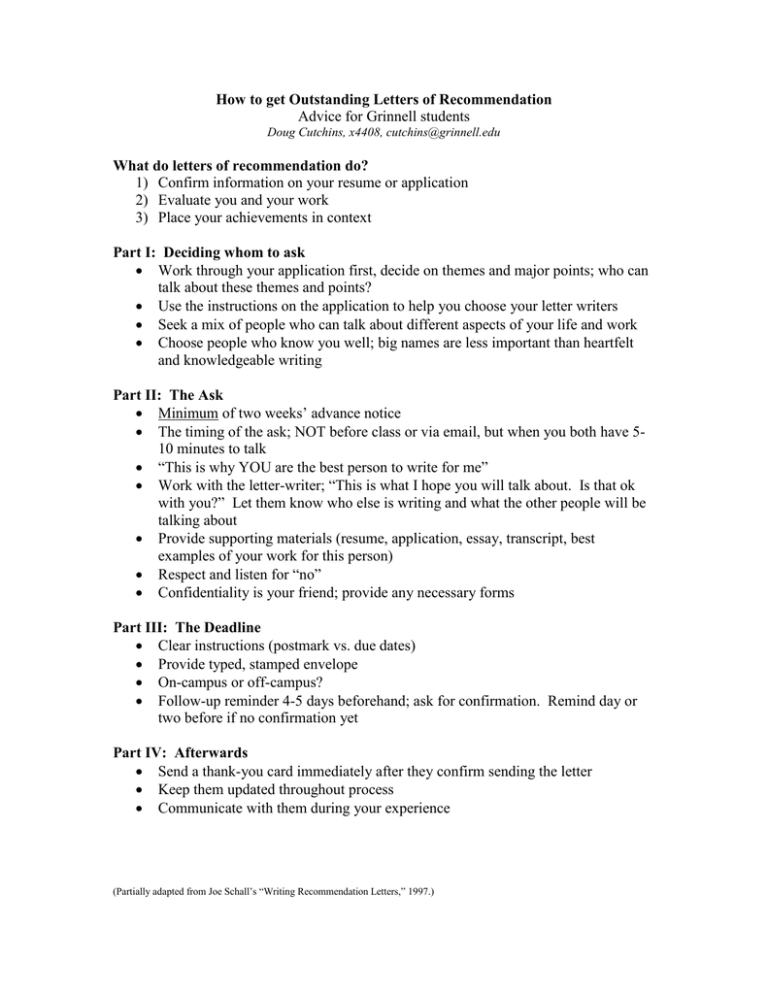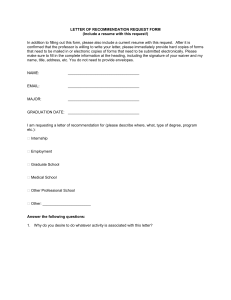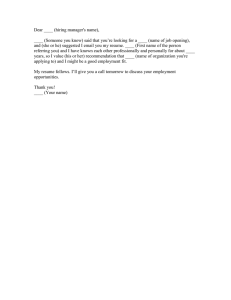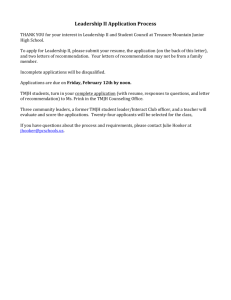How to get Outstanding Letters of Recommendation Advice for Grinnell students
advertisement

How to get Outstanding Letters of Recommendation Advice for Grinnell students Doug Cutchins, x4408, cutchins@grinnell.edu What do letters of recommendation do? 1) Confirm information on your resume or application 2) Evaluate you and your work 3) Place your achievements in context Part I: Deciding whom to ask Work through your application first, decide on themes and major points; who can talk about these themes and points? Use the instructions on the application to help you choose your letter writers Seek a mix of people who can talk about different aspects of your life and work Choose people who know you well; big names are less important than heartfelt and knowledgeable writing Part II: The Ask Minimum of two weeks’ advance notice The timing of the ask; NOT before class or via email, but when you both have 510 minutes to talk “This is why YOU are the best person to write for me” Work with the letter-writer; “This is what I hope you will talk about. Is that ok with you?” Let them know who else is writing and what the other people will be talking about Provide supporting materials (resume, application, essay, transcript, best examples of your work for this person) Respect and listen for “no” Confidentiality is your friend; provide any necessary forms Part III: The Deadline Clear instructions (postmark vs. due dates) Provide typed, stamped envelope On-campus or off-campus? Follow-up reminder 4-5 days beforehand; ask for confirmation. Remind day or two before if no confirmation yet Part IV: Afterwards Send a thank-you card immediately after they confirm sending the letter Keep them updated throughout process Communicate with them during your experience (Partially adapted from Joe Schall’s “Writing Recommendation Letters,” 1997.)


